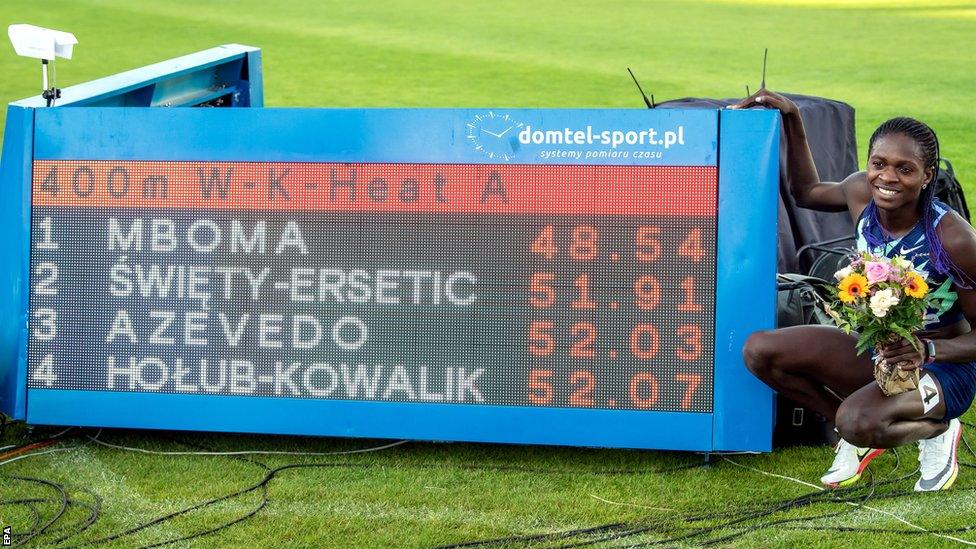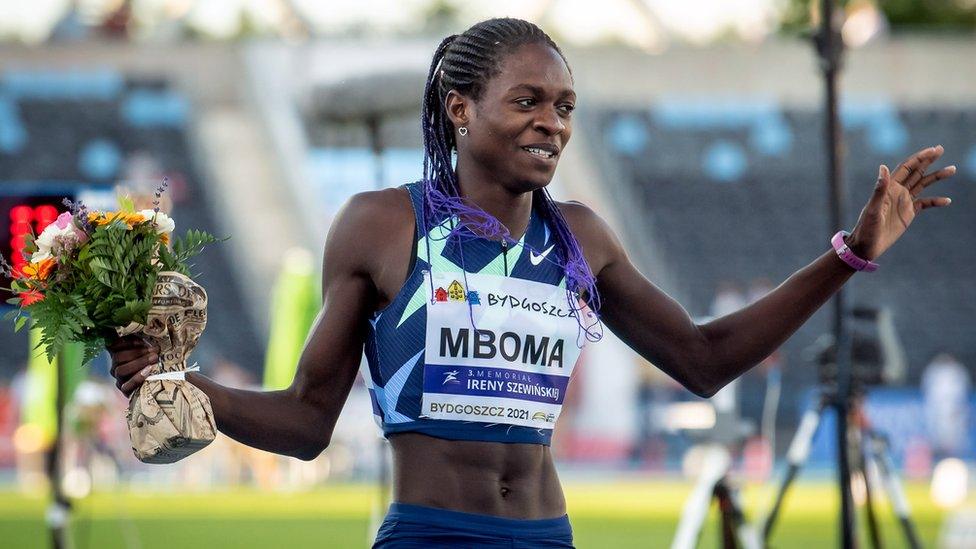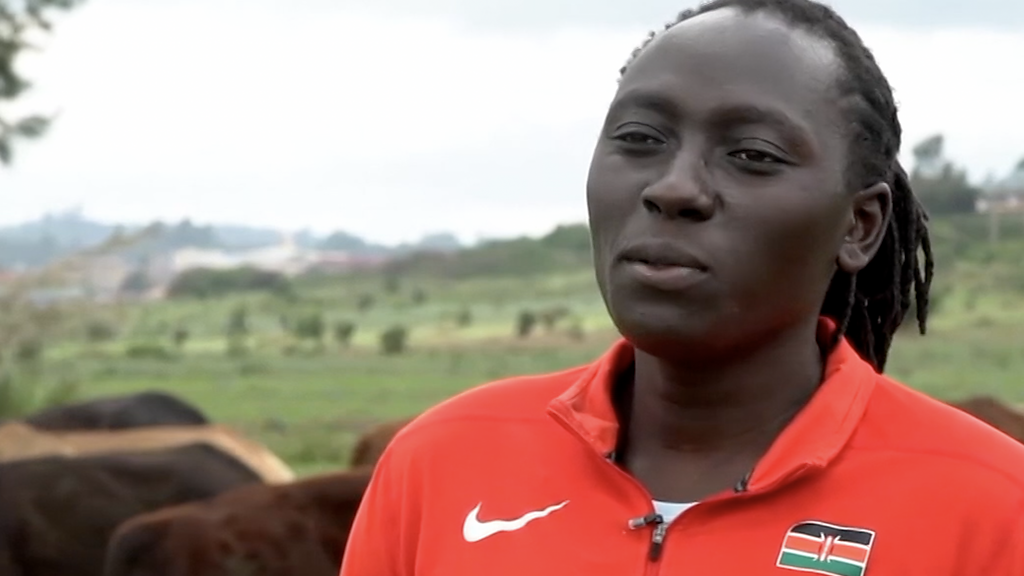Namibian teenagers out of Olympic 400m over testosterone levels
- Published

Namibian teenager Christine Mboma - who broke the 30-year-old world 400m Under-20s record on Wednesday - is out of the event at the Olympics after being found to have naturally-occurring testosterone levels beyond those specified by World Athletics.
The time set by 18-year-old Mboma on Wednesday in the Polish city of Bydgoszcz was the seventh-fastest 400m run by a woman of all time - and suggested she was a prime candidate for gold in the event at Tokyo.
But Namibia's national Olympic committee (NNOC-CGA) has now confirmed Mboma and fellow sprinter Beatrice Masilinigi are unable to run the distance in Tokyo because of World Athletics rules on "Athletes with Differences of Sexual Development", or DSD, following testing conducted by the global body.
"It is important to understand that both our athletes were not aware of this condition," the NNOC-CGA said in a statement. "Neither did any family member, their coach or the NNOC-CGA."
Speedy rise
Mboma had enjoyed a remarkable year, breaking a series of personal bests, national, continental and global records over 400m.
Her time of 48.54 - nearly nine-tenths faster than the mark youth set by East German athlete Gritt Breur in 1991 - was so fast that she was suddenly a possible contender for an Olympic medal, especially after a week in which one main rival, Bahrain's Salwa Eid Naser, was banned for two years for breaching anti-doping rules.
But Mboma's ever-improving displays caught the attention of World Athletics (WA), who requested preliminary medical assessments, conducted in Namibia.
Further tests were carried out this week with both Mboma and Masilingi at the duo's training camp in the Italian capital Rome, the results of which "indicated that both athletes have a natural high testosterone level".
"The NNOC-CGA and our medical officer are in close contact with (the) medical officer of World Athletics with regards to the way forward in the interests of our two sprinters," said the NNOC-CGA.
"We will analyse all information. We are positive on their future as elite athletes. Both Christine and Beatrice will be able to compete in the 100m and 200m events.
"Their coach is positive to continue working with the girls on those events while we are consolidating on the way forward."
Both Mboma and Masilingi will be competing in their first Olympics in Tokyo, Japan, when the Games take place between 23 July and 8 August.

Namibia's Mboma has been attracting a lot of attention since her blistering run in Poland
'Meaningful competition'
World Athletics bars athletes classified as DSD from competing in any distance between 400m and the mile in the female category unless they artificially reduce their testosterone levels, which the global body claims give the runners an unfair advantage.
WA says testosterone can boost endurance and muscle mass, among other effects, and that DSD rules are needed to "ensure fair and meaningful competition within the female classification".
Athletes can reduce levels by taking specific drugs or having surgery - although that option is discouraged - with one DSD athlete, Margaret Wambui, having recently called for a third category of athletics to be introduced to allow those with naturally high testosterone to contest their preferred event.
Kenyan runner Margaret Wambui says athletics needs a third category beyond men and women.
The Kenyan is one of three women, all of whom took 800m medals at the 2016 Olympics, who have since been barred from contesting the distance because of their classification, with gold medallist Caster Semenya of South Africa and Burundi's Francine Niyonsabo the others.
Semenya is currently fighting World Athletics' testosterone rules at the European Court of Human Rights, in what is considered a final bid to be able to contest her favoured distance.
On Wednesday, the 30-year-old failed to qualify for the Olympics after failing to run fast enough in the 5,000m, with the two-time Olympic champion having chosen a longer distance even than a sprint.
"The ban doesn't make sense at all," she said afterwards. "I'll keep fighting for my rights."
Related topics
- Published4 June 2021
